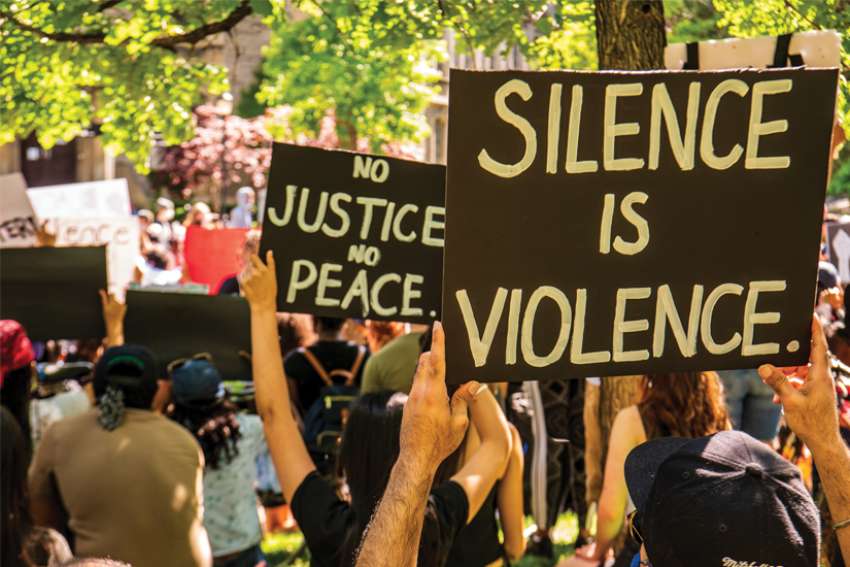One of prevalent criticisms that has surfaced on social media and some right-leaning media outlets is that this training can encourage children to evaluate their peers over an immutable physical difference rather than their content of character. Another is that it can instill within white youth a perception that they are “oppressive” and Black youth that they are “victims” with society systemically stacked against them.
But for Emily McCall, a digital communications co-ordinator and spokesperson at the Durham Catholic District School Board, the criticism shows why the course is needed in the first place.
“We would say that these criticisms inform us that we are on the right track — that we are agitating systems of oppression, racism and colonization that argue, ‘Why change the mainstream?’; ‘Why challenge the status quo?’; ‘Undoing it will do more harm than good’, etc.,” said McCall. “We recognize that Eurocentric knowledge, culture and ideas have long been posited as ‘neutral.’ Let’s ask what can be gained by not interrogating or questioning what we have accepted as truth or fact? And, what can be gained if we do? Our focus is preparing and supporting our current and future leaders, not to assess the validity and pursuit of knowledge in the light of our personal and professional comfort, but by our personal and professional accountabilities.”
The interdisciplinary studies class entitled “Deconstructing Anti-Black Racism in the Canadian and North American Context” will be making its debut at several Durham Catholic schools this fall. The course was developed at the Toronto District School Board and teachers from Fr. Leo J. Austin Catholic Secondary School in Whitby, Notre Dame Catholic Secondary School in Ajax and Pickering’s St. Mary Catholic Secondary School engaged in professional development sessions with TDSB teachers in preparation to teach this class.
McCall said there were a couple different stimuli behind bringing anti-racism education to the classroom in 2021-22.
“Kelly Denomme, principal at Fr. Leo J. Austin CSS, was approached by a parent to ask if she would be interested in offering the course,” said McCall. “We were able to dialogue with one of the curriculum writers (D. Tyler Robinson) and research to seek to offer this course at DCDSB.”
Robinson, an alumnus of Fr. Austin, collaborated with fellow Black teachers Tiffany Barrett, Ramy Basu and Kiersten Wynter at Newtonbrook Secondary School in Toronto. The four devised the course during July and August 2020, a summer substantially defined by Black Lives Matter protests and conversations.
It was the pupils’ desire for more anti-racism education that inspired the TDSB quartet, a dynamic in play at the Durham Catholic board.
“Student voice forums held with Notre Dame CSS students during the pandemic revealed that many Black students feel that our schools don’t engage them in culturally responsive ways. The combination of these voices was the catalyst for DCDSB to implement the course,” said McCall.
The course consists of five units exploring anti-Black racism. The first four units strive to arm Grade 12 students with the skills to engage in tough anti-Black racism discussions, probe historical events with a critical eye, “analyze various stereotypes of Blackness found in the media” and attaining an understanding “of how the oppression of Black people is not a singular experience.”
The unit five capstone project challenges students to employ the theories and skills they have obtained to pose their own questions about equity and then devise action-based answers.


